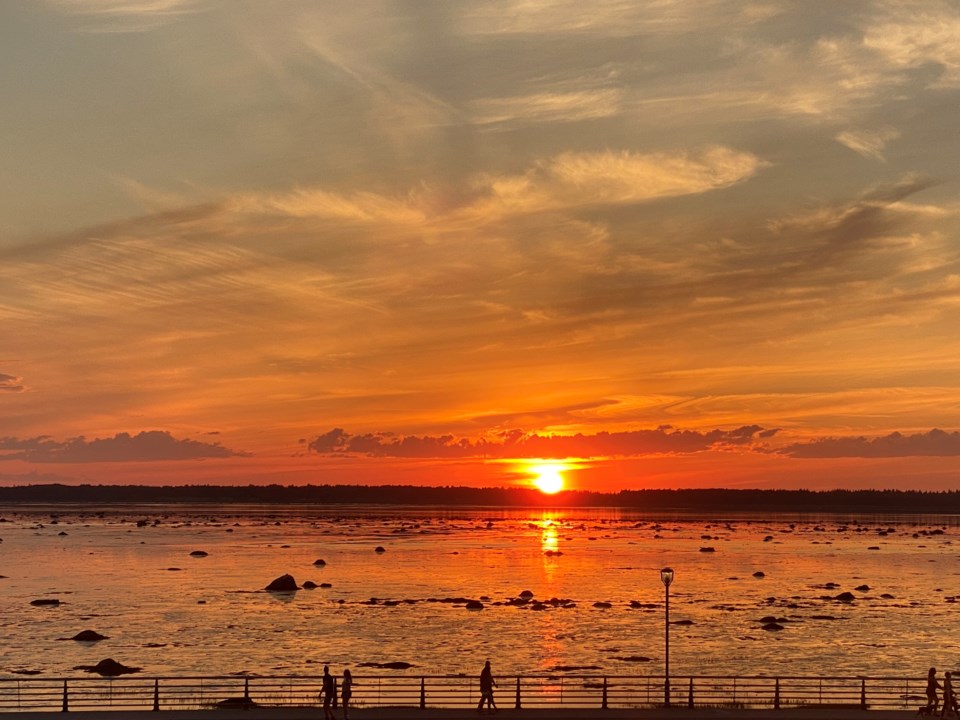I just returned from a week-long work sojourn to Quebec. On assignment for a travel magazine, the thrust of the story had to do with UNESCO Global Geoparks—both established and pending—with a side of UNESCO’s other touristic redoubts, Biosphere Reserves and World Heritage Sites. Quebec has a few of each, embedded in regions already known for their natural beauty, history, art and gastronomic delights. In other words, touristy places. As a result, and with it being summer, I anticipated a little bit of something I’ve come to dread in such locales: the bugbear of overtourism. We’ll come back to what I found.
No doubt you’ve heard the term. Not to be confused with mass tourism, which is often sustainable, overtourism—where visitation either exceeds a destination’s carrying capacity and/or the type of tourism taking place causes significant negative impact—had become a global problem by the new millennium. Strangely, it stayed off the news radar until around 2015; then it took another five years, a pandemic, and the pent-up travel demands of billions of people to demonstrate the toxicity of overtourism on a local level as city folks mobbed and misused the closest open spaces they could reach. The Sea to Sky experienced it with an abundance of disconnected, cavalier visitors who only wanted to go somewhere—anywhere—to feel free to do what they wanted, whether that was revving their engine on a quiet backroad, camping illegally, lighting fires everywhere or not being responsible for even their own garbage as long as they got that Instagram shot to prove they’d put lockdowns behind them. It was as if, having endured the restrictions and responsibilities we’d all faced, some felt justified to push the limits of natural and community values anyplace they went. Entitlement at its worst. The result was permit requirements for some B.C. Parks and the Lil’wat Nation, fed up with government foot-dragging over impacts to its lands, unilaterally shutting down Joffre Lakes Provincial Park (the best thing that could have possibly happened, but I digress…).
Though tourism numbers per se have yet to rebound to pre-pandemic levels in many parts of Canada, the effects and attitudes of “rebound overtourism” persist. Visitors behave with more entitlement than ever, sparking much handwringing and hopeful actions like Destination BC’s “Don’t Love it to Death” campaign you may have seen collateral for.
Allison Jane Smith was one of the first journalists to tackle overtourism back in 2018 with a piece pointedly titled: “The Next Trend in Travel is… Don’t.” Insisting it was time to rethink the purpose of travel, the article offered high-profile examples of how tourism was destroying environments and driving out locals: on the Indonesian island of Bali a garbage emergency and eroding beaches had created an ecological crisis that showed no signs of abating as the island sought to add to its already seven million/year tourism total; Thailand closed an entire island because of environmental degradation caused by visitors (similar can be seen almost anywhere, from the Grand Canyon to Machu Pichu); in 2017, Barcelona, Spain, experienced a major backlash against tourism that manifested in graffiti, signs and eventual street riots; hot on their heels in protest were the citizens of Venice, Italy, already one of the most crowded places on Earth before cruise ships started docking in high numbers, tipping the livability balance and driving out half the populace with high rent and other costs (sound familiar?). A crush of humanity numbering 20 million visitors a year had turned a vibrant, historic city into a sad caricature of itself (it now charges a fee to all visitors).
The starting point for Elizabeth Becker, author of Overbooked: The Exploding Business of Travel and Tourism, is one most wouldn’t be aware of: prior to the pandemic, tourism and travel was an $8 trillion annual industry and the largest employer on Earth, sustaining one in 11 people. Her conclusion was that neither operators nor tourism types could reel in a monster that clearly required government intervention. “Most governments still measure tourism success simply by the number of visitors. The more, the better. For the moment, officials have been reluctant to regulate tourism to the benefit, first of all, of their own citizens. Instead, tourism is seen as an easy moneymaker and a short cut to economic development… France, Bhutan, Costa Rica and Canada are among the few countries with governments willing to co-ordinate policies of sustainable tourism and they haven’t suffered: they are among the most popular destinations in the world.”
And while Banff may be far better managed than other places of mass tourism like Cambodia’s Angkor Wat, Petra in Jordan, or even Nepal’s Mount Everest trek, it doesn’t mean it’ll stay that way. As Becker summed: “Cities and societies can be just as vulnerable to runaway tourism as ocean beaches and forest habitats, and governments need to do the hard work of taming tourism for them as well.”
And so, what did I find in Quebec? No problem at all. Granted, this was early summer, but driving 2,500 kilometres from Quebec City through Charlevoix, across the St. Lawrence and around the entire Gaspé Peninsula, every stop and every experience was an uncrowded delight, whether ferry, street festival or UNESCO designated site; restaurant, museum or national park. All were hosting tourists—both Quebecois and those from abroad, families and otherwise—but nowhere were there too many. Somehow it was all well-managed and well-maintained, with people paying for the privilege of any activity—such as parks—that required staff and upkeep. Experiences were spread out and uncompromised by numbers. You could walk to a lot of them. There was no free parking anywhere. Not a single off-leash dog. And plenty of enforcement.
Whistler might want to think about that.
Leslie Anthony is a Whistler-based author, editor, biologist and bon vivant who has never met a mountain he didn’t like.




